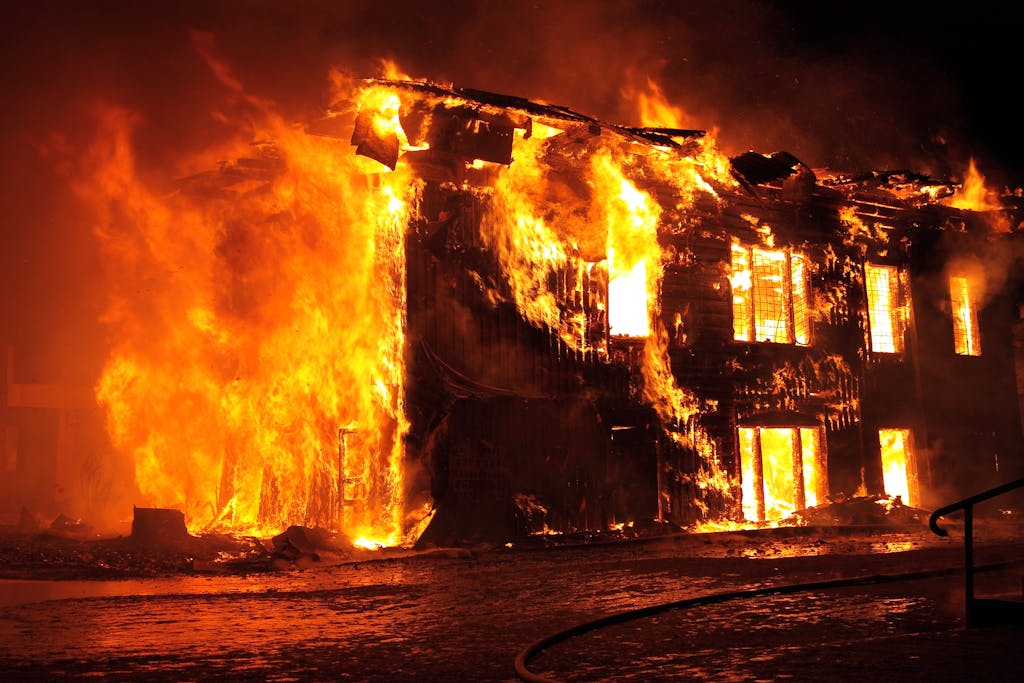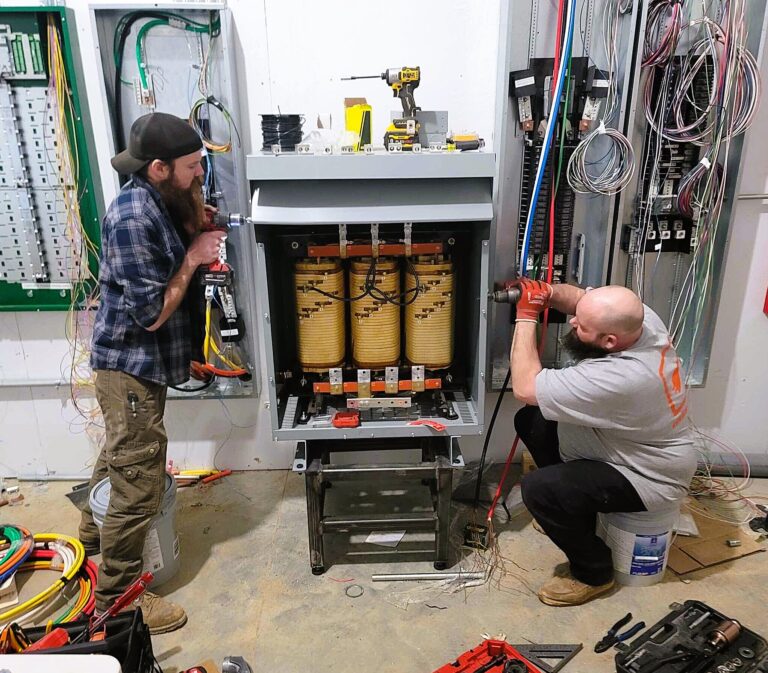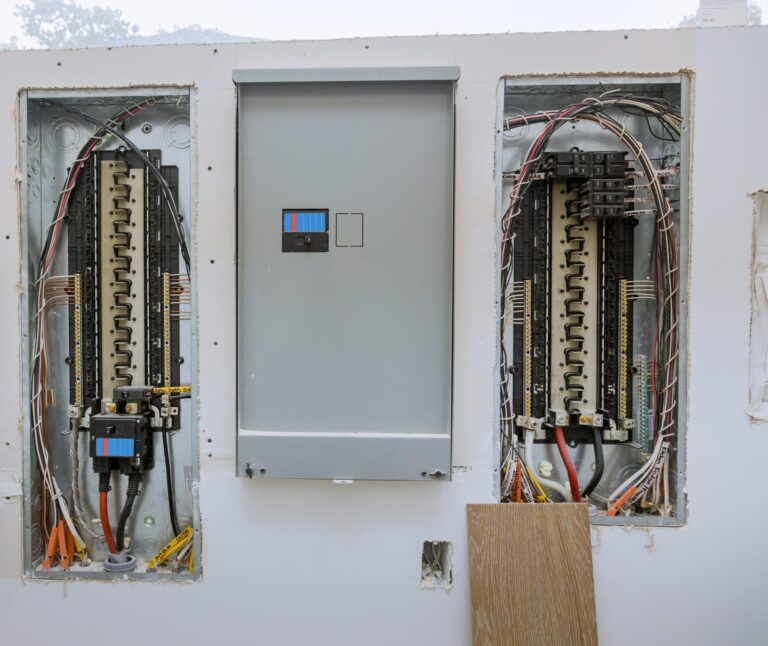When Should You Call an Electrician vs a Handyman?
For any homeowner, a to-do list of small repairs and projects is a constant reality. A sticky door, a leaky faucet, a small patch of drywall to repair; these are the familiar tasks that keep a home in good working order. When these jobs pop up, the first instinct for many is to call a local handyman. A skilled handyman is a valuable resource, a versatile professional who can efficiently tackle a wide variety of maintenance issues. But when a project on your list involves your home’s electrical system, the decision-making process requires a critical pause. A flickering light, a dead outlet, or the desire to install a new ceiling fan may seem like just another simple task, but it occupies a completely different category of risk.
The choice between hiring a handyman and calling a licensed electrician is not a simple matter of cost or convenience. It is a fundamental decision about safety, legality, and liability. While both professionals can be masters of their respective crafts, their training, qualifications, and the scope of work they are legally allowed to perform are worlds apart. Understanding this crucial distinction is essential for protecting your family, your property, and your financial well-being from the potentially devastating consequences of improperly performed electrical work.
Understanding the Roles: The Handyman vs. The Licensed Electrician
A handyman is a generalist, often skilled in a broad range of trades like carpentry, painting, and minor plumbing repairs. They are the perfect professional to call for cosmetic fixes, simple assemblies, and general home maintenance. Their value lies in their versatility and their ability to handle a diverse list of small projects in a single visit. However, their training is typically based on experience rather than a formal, standardized program. They are generally not licensed in a specific, high-risk trade, nor are they required to carry the specialized insurance that covers that trade.
A licensed electrician, in contrast, is a highly trained specialist. Their career path is a long and rigorous one, requiring thousands of hours of formal apprenticeship under the supervision of master electricians, combined with extensive classroom instruction. Before they can work independently, they must pass a comprehensive state or local examination to prove their in-depth knowledge of electrical theory, safety protocols, and the complex, ever-evolving National Electrical Code (NEC). This license is not just a piece of paper; it is a legal credential that certifies their expertise and is a mandatory requirement for performing electrical work in Ohio. An electrician’s job is not just to connect wires; it is to understand how the entire system works to ensure it can deliver power safely and reliably.
Jobs Best Suited for a Handyman
To draw a clear line, it is helpful to identify the few “electrical-adjacent” tasks that are perfectly safe and appropriate for a handyman to perform. These tasks are almost entirely cosmetic or involve simple battery-powered devices, and they do not require any interaction with your home’s live wiring.
A handyman is the ideal person to call for changing hard-to-reach lightbulbs or replacing the batteries in your smoke and carbon monoxide detectors. They can also handle purely cosmetic upgrades like replacing the plastic or metal cover plates on your existing switches and outlets. These tasks are simple, involve no risk of electric shock or fire, and fall well within the scope of general home maintenance.
The crucial, uncrossable line is the wire itself. The absolute moment a task requires a wire to be disconnected, connected, or exposed in any way, it immediately graduates from a handyman’s job to a job that legally and safely requires a licensed electrician. Even a seemingly simple task like replacing a light switch involves working with live circuits and has the potential for dangerous errors if not performed correctly.
When You MUST Call a Licensed Electrician
The vast majority of electrical projects, from minor repairs to major installations, fall exclusively into the domain of a licensed professional. Attempting to save a small amount of money by hiring a generalist for these jobs introduces a significant and unnecessary risk into your home.
Installing a new light fixture or ceiling fan is a prime example of a job that seems simple but is full of potential complications. An electrician will not only handle the wiring but will also ensure that the electrical box in the ceiling is properly braced and rated to support the weight and rotational stress of a heavy fan. A handyman may not be aware of this critical structural requirement, creating a serious safety hazard.
Likewise, installing a new electrical outlet or switch requires a deep understanding of the home’s circuitry. An electrician knows how to add a new component without overloading the circuit, a common cause of tripped breakers and a potential fire risk. They also know the specific code requirements for different areas of your East Canton home, such as the need for GFCI (Ground Fault Circuit Interrupter) outlets near water sources and AFCI (Arc Fault Circuit Interrupter) protection in living areas to prevent fires.
Any troubleshooting of electrical problems, such as flickering lights, dead outlets, or frequently tripping breakers, absolutely demands the diagnostic expertise of an electrician. These issues are often symptoms of a more serious, hidden problem like a loose connection, a short circuit, or a dangerous fault in the wiring. A handyman might only treat the symptom, while an electrician will trace the circuit to find and fix the root cause, permanently eliminating the danger. Major projects like upgrading your electrical panel, running a new dedicated circuit for a large appliance like a hot tub or an EV charger, or any outdoor electrical work are complex, dangerous jobs that, by law and by common sense, must only be performed by a licensed and qualified electrician.
Having electrical issues? Click here to learn more about our electrical inspections.
The Hidden Risks of Using a Handyman for Electrical Work
Opting to use a handyman for an electrical job can expose a homeowner to a cascade of hidden risks that go far beyond the immediate project. These risks involve the physical safety of your home, your legal and financial liability, and the long-term value of your property.
The most important and sobering risk is safety. Improperly installed electrical wiring is one of the leading causes of residential fires in the United States. A loose connection can create an electrical arc that generates intense heat, easily igniting nearby wood or insulation. An overloaded circuit can overheat and melt its protective sheathing. A lack of proper grounding can create a severe shock hazard. A licensed electrician is trained to prevent these specific dangers. The small amount of money saved by hiring a handyman is an insignificant sum when weighed against the potential for a catastrophic fire.
Beyond the immediate safety concerns are significant legal and financial risks. In Ohio, most electrical work requires a permit from your local building department and a subsequent inspection to ensure it complies with all safety codes. An unlicensed handyman cannot legally pull these permits. If you attempt to sell your home, any unpermitted and uninspected electrical work can be a major red flag for a home inspector, potentially derailing the sale or forcing you to pay to have all the work torn out and redone by a licensed professional.

Furthermore, consider the insurance and liability implications. If a fire or other damage occurs and the investigation determines the cause was faulty electrical work performed by an unlicensed individual, your homeowner’s insurance company may have legal grounds to deny your claim. This could leave you financially responsible for the entire loss. The peace of mind that comes from knowing your electrical work was done safely, legally, and to the highest professional standard is invaluable.
Handymen play a vital and valuable role in keeping our homes functional and beautiful. Their broad skill set is an asset for countless projects. However, the complex, high-stakes, and inherently dangerous nature of a home’s electrical system places it in a category all its own. Any task that involves the flow of electricity through wires, no matter how minor it may seem, demands the specialized training, certified expertise, and legal accountability of a licensed electrician.
The decision is ultimately about risk management. It is about protecting the integrity of your home, the safety of your family, and the security of your financial investment. The wiring that runs silently behind your walls is the lifeblood of your modern home, and its care should only be entrusted to a qualified professional. For any and all of your electrical needs in the East Canton and surrounding Stark County area, from troubleshooting a faulty switch to a full panel upgrade, always prioritize safety and professionalism. Contact the expert team at Gragg Electrical Services to ensure your job is done right.












